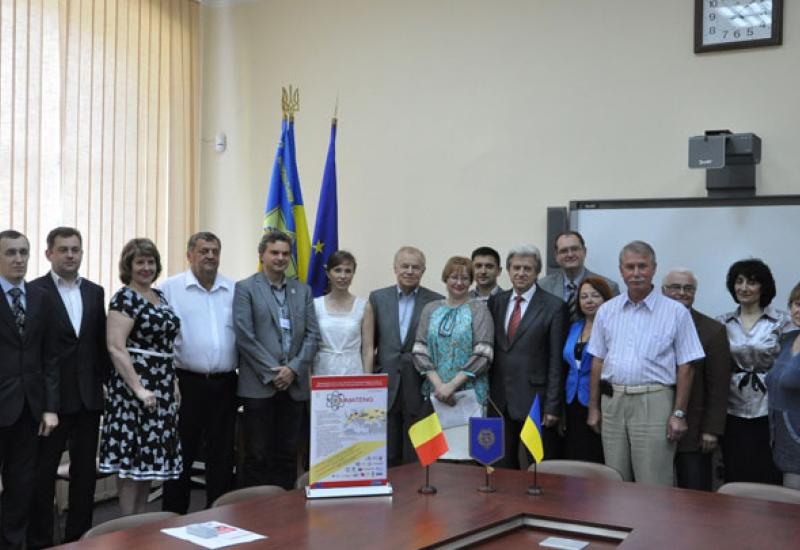June 13 meeting of the Monitoring Group of the project «MATTENG», which is performed in the framework of international educational program TEMPUS, was held in NTU "KPI".
Direction of the project is clear from its name «Modernization of two cycles (MA, BA) of competence-based curricula in Material Engineering according to the best experience of Bologna Process» – «MATTENG». That is, its executors are working to update the curricula of bachelor's and master's degrees in engineering materials science, to develop and implement a modernized curriculum on materials engineering with integrated infrastructure support, to improve the skills of teachers and to carry out trainings at the enterprises according new curricula and methodologies. And more - to create a service offices in engineering materials science at the universities of Ukraine, Belgium, Germany, France, Russia, Israel and Poland. These countries are partners in project implementation. Members of the consortium implementing the project «MATTENG» are also the Ministry of Education and Science of Ukraine, JSC "Metallurgical Plant" Iron & Steel Works "(Mariupol, Ukraine), Office of Engineering, consulting and management (Berlin, Germany), with a budget of EUR 1 216 789.02 .
Note that the implementation of the project started on 1 December 2013 and work on it will continue until November 30, 2016. Thus it was the first monitoring session in which participants reviewed the implementation of its initial activities. Members of the monitoring mission, which included international projects coordinator Faculty of Engineering Technology, University of Leuven (Belgium), Peter Arras, director of the National TEMPUS-office in Ukraine Svetlana Shitikova and project coordinator of the National TEMPUS-office in Ukraine Svetlana Batsyukova discussed with project participants from Ukrainian side its basic principles and first steps. The meeting was attended by the First Vice-Rector of the KPI NAS of Ukraine academician Yuri Yakimenko, vice rector of KPI corresponding member of NAS of Ukraine Sergey Sidorenko, Regional Project Coordinator in Ukraine Vice Rector Azov State Technical University (Mariupol), Professor Alexander Cheylyah, representatives of universities participating in the project - national University "Lviv Polytechnic" and Lutsk national Technical University, Dean of the Faculty of engineering Physics KPI corresponding member of NAS of Ukraine Peter Loboda, as well as teachers, researchers and graduate students of the university.
"Our main goal is to improve the quality of specialists' training in the field of materials engineering, - Alexander Cheylyah said answering the question about the contribution to the project from our compatriots.- Precisely Ukrainian consortium members are the initiators of the project. In particular, our Priazovsky Technical University filed the first proposals to the relevant authorities of the European Union and Ukraine. Of course, as one of the main partners Kiev Polytechnic Institute have been chosen, as its engineering physics faculty is probably the most powerful in Ukraine - it has five departments of materials science areas ... ".
Unfortunately, at the very beginning of the project implementation Ukrainian participants met with certain difficulties caused, not least, political circumstances. However, according to Alexander Cheylyaha, they can be overcome. For example, holding a start conference of the project in Ukraine was scheduled for the month of February, but because of the events in Kiev, her date was postponed to March in Antwerp (Belgium). Today we have something to overtake, but early reports indicate that all Ukrainian universities have successfully coped with the tasks that they should perform in accordance with the plan. Analysis of curricula for special materials science disciplines was carried out. Proposals for modernization or use of these curricula as separate objects or modules were prepared.
After the presentation, participants in the project monitoring mission met with teachers, scientists, students and graduates of the Faculty of Physical Engineering.

